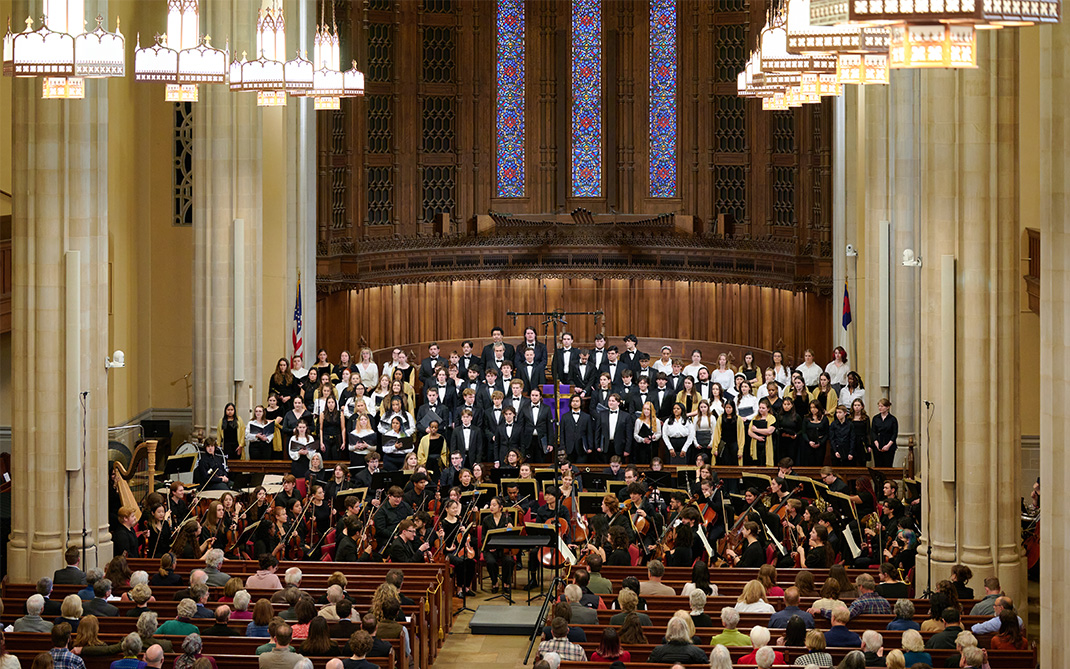April Playlist: Film music guaranteed to bring you to tears, or you are not human
In honor of RiverRun International Film Festival, held in Winston-Salem this month, the April playlist features film scores, curated by Film Music Composition faculty member Chris Heckman.
Heckman, who handpicked the name of this month's playlist, carefully selected tracks that deeply moved him the first time he viewed the associated films.
“A film score must tell a story, and that story must be in service to the moving picture it accompanies,” he says. But also “it must be great music that stands alone without the picture.” According to Heckman, music on this playlist accomplishes both.
Here’s a closer look at the meaning behind some of Heckman’s selections.
Animation. “2815 A.D.” (Thomas Newman for “WALL-E”) and “Married Life” (Michael Giacchino for “Up”). Part of the reason why Pixar films are so successful is because they challenge the idea that animated films are produced only for kids. So many of the stories that Pixar films tell are not afraid to include deep intellectual themes. These two tracks are perfect examples of the emotional depth that these animated films can portray, even through non-human characters, such as WALL-E.
Short and impactful. “Blood on the Pavement” (David Arnold and Michael Price for “Sherlock”). This track is the most unexpectedly stunning score I have ever heard on a first viewing of a film. And even more unexpected is that this comes from a television show. Arnold and Price composed a piece of tremendous harmonic complexity for the initial “death” of Sherlock Holmes. The end result is a series of dramatic shifts that make the listener go through a series of emotions in a very short period of time.
John Williams. “Theme from Schindler’s List” (“Schindler’s List”), “Where Dreams are Born” (“A.I.”) and “Anakin’s Betrayal” (“Star Wards Episode III - Revenge of the Sith”). Simply put, John Williams is our greatest and most widely-recognized living composer. If you stopped a random person in the street today, they might not be able to tell you who John Williams is, but they probably would recognize his most popular themes. His theme for “Schindler’s List” may be the most heartbreaking piece of music ever composed to film. And the genius of the music itself is in how masterfully he channeled Jewish musical history and culture in the work, and of course the flawlessly emotive violin performance by Itzhak Perlman.
Cutting room floor. “My Suicide (Dedicated to 3.29.1967)” (Ludovic Bource for “The Artist”) and “Scene d’Amour” (Bernard Herrmann for “Vertigo”). “My Suicide (Dedicated to 3.29.1967)” is the most unusual track on this list, in that it does not actually appear anywhere in “The Artist.” It was composed for the scene where George Valentin considers committing suicide, yet it ultimately was left on the cutting room floor in favor of “Scene d’Amour” from “Vertigo.” This ended up being a highly controversial decision, nevertheless the score still won an Oscar in 2011. If you listen to one after the other, you can certainly hear “Vertigo”’s influence on “The Artist.”
 |
This month's playlist is by Chris Heckman, Film Music Composition Faculty.
|
April 06, 2017




